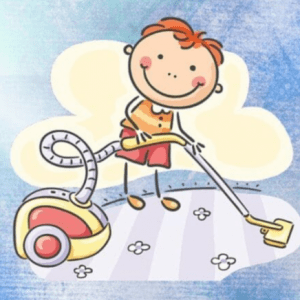DOs and DON’Ts for Chores with Kids (Plus Free Printable)
Why chores are encouraged for kids
Most would agree that having kids participate in chores is a win-win for families. Kids learn needed discipline along with new life skills. Parents are relieved of the tasks (once chores are running smoothly!). And children strengthen their self-esteem, while developing an appreciation for how the family unit cooperates and functions.
But that doesn’t mean family chore activities are a no-brainer.
Ideally, parents or other caregivers should be prepared for success before they begin assigning chores so they can avoid some common stumbling blocks.
Tips to make chores successful
We have a list of suitable chores for different age groups to give you some ideas.
To help keep kids engaged with their chores we offer free printable chore charts with a great selection for you to choose from. Our chore charts are broken up into the following age groups:
We’ve also prepared some DOs and DON’Ts to help you make a plan. See the list below.
Things You Should Not Do
 |
Don’t insist on perfection: Chores can be a great learning experience but not if kids get frustrated or feel like a failure. |
 |
Don’t wait too long: If you wait too long before beginning chores, there is a greater chance that an older child will resist. |
 |
Don’t guess on suitable chores: Don’t just give random chores. The wrong chores may be too difficult or even dangerous. |
 |
Don’t be vague in describing: Don’t give a loose description like “set the table.” A young child needs to know exactly what to do. |
 |
Don’t be inconsistent: Plan to repeat all your instructions daily until a habit is formed. Demonstrating can be helpful. |
 |
Don’t forget to acknowledge! No one wants to be taken for grated. Everyone needs a pat on the back, even after the chore becomes a habit. |
Things You Should Do
 |
Do give lots of praise: Praise helps you promote good chore participation. Don’t overdo, but be sure to verbally support efforts. |
 |
Don’t wait too long: If you wait too long before beginning chores, there is a greater chance that an older child will resist. |
 |
Do use charts to guide plans: Age charts can help you make good decisions on what to assign. Everyone is different; guidelines help. |
 |
Do use clear words and demonstrate: Plan to repeat all your instructions daily until a habit is formed. Demonstrating can be helpful. |
 |
Do stick to your routine: Make a point to stay on top of the chores with an expectation for the child to complete them. |
 |
Do find a way to show thanks: Whether you use praise, a star chart, or allowance as a reward, be sure to follow through regularly. |











